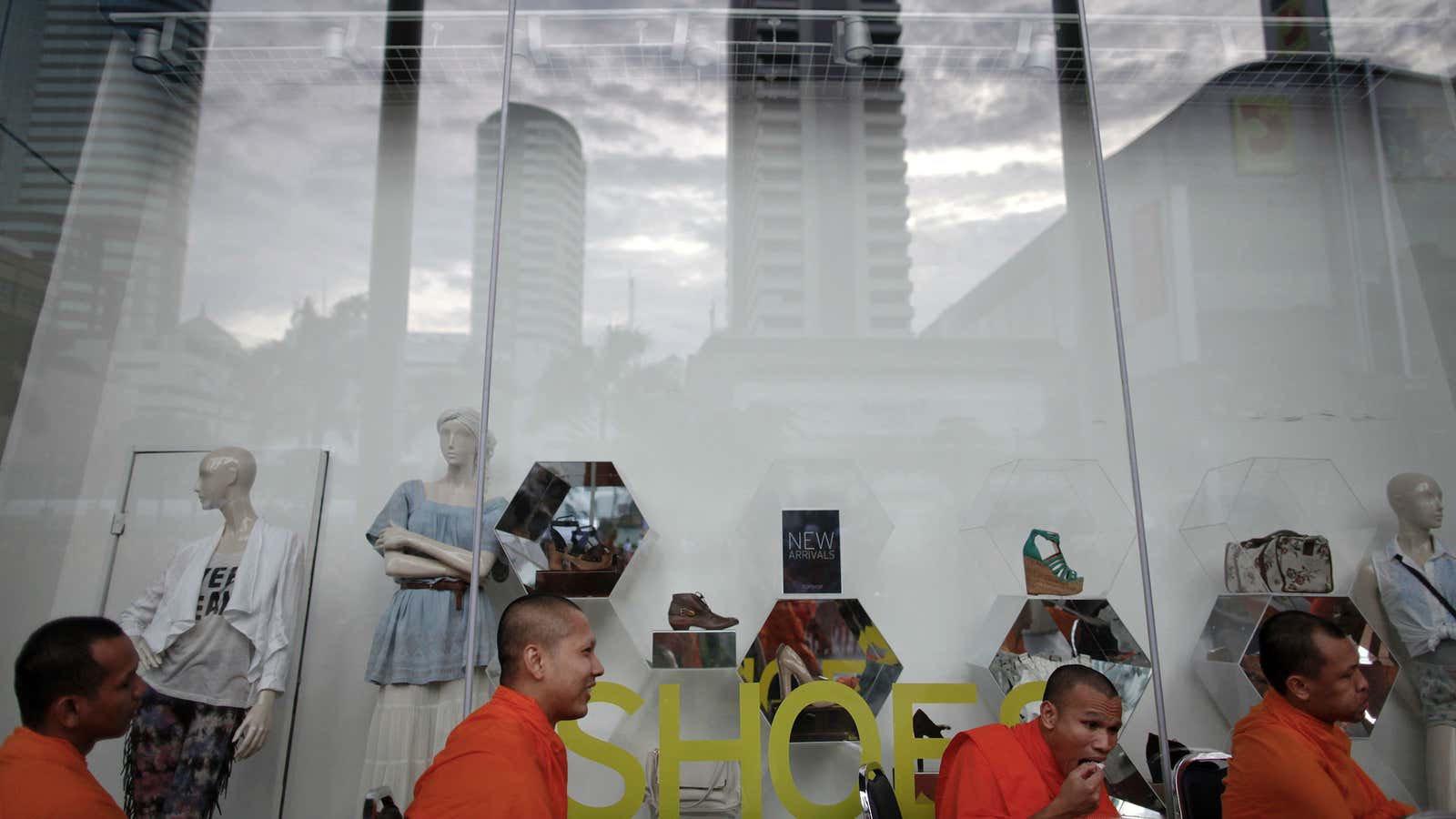Today marks Wan Khao Phansa, the beginning of Buddhist Lent, a holiday during which many monks in Thailand retreat to their temples for three months of meditation, study, and shunning of the material world.
But the centuries-old holiday stands in stark contrast with the material habits of the modern-day monk. Late last month, photos of six Thai monks shopping in the US for smartphones and luxury goods and dining at a steakhouse went viral. Thailand’s National Office of Buddhism says it has received complaints from locals in the country of monks cruising around in luxury cars. In May, a video of monks in a private jet also circulated the internet, prompting an investigation by Thai authorities. One monk in the video was found to have about 1 billion baht ($32 million) in assets and 41 bank accounts.
Religious and secular observers have worried that as Thailand’s economy speeds along and enriches its population, the country’s most popular religion, Theravada Buddhism, is losing relevance and threatening the central role that Buddhist temples and their monks have played in Thai society. “Consumerism is now the Thai religion,” Phra Paisan Visalo, one of the country’s most revered monks said last year. “In the past, people went to temple on every holy day. Now, they go to shopping malls.” (As we’ve reported, about 19% of Thai households will earn more than $20,000 in income by 2017, up from 2.2% in 2002.)
On the bright side, consumer engagement could help Thailand’s Buddhist monks relate their religious traditions to the general population—while spurring the economy. The retail business of supplying products for monks is worth about 10 billion baht (paywall), or $320 million, according to a study published last year by a Thai bank’s Kasikorn Research Center. In a sign that monk consumerism is growing, a mega-supply store on the outskirts of Bangkok, Hang Sangkapan, or “Monk Supply”, is hoping to franchise and find investors. Modeled after big-box retailers like Carrefour, the store offers a bevy of religious clothes, candles, Buddha statuettes and altar tables for Thailand’s robed men.
The country’s monks could become a formidable population of shoppers. For at least one period in their lives, all Thai men are expected to shave their heads, don the saffron-colored robes and live as monks, learning Buddhist teachings. Many go back to their secular lives, but the few weeks they spend among the religious ranks provide an opportunity for retailers to sell supplies that support an austere existence. At the end of last year, Thailand had about 300,000 monks and 60,000 novice monks—out of a population of about 66 million, according to the government. (Most of the rest of the population, even if they are not monks, are Buddhist.)
As the Wall Street Journal reports (paywall), at Monk Supply—a store opened six years ago by a man who was frustrated by having to scour Bangkok to buy religious supplies for a group of poor monks—robes range from 1,000 baht ($33) for cheaper synthetic material to rich, cotton ones that cost several thousand baht. In a hyper-consumerized world, even monk supplies are becoming a segmented market.
